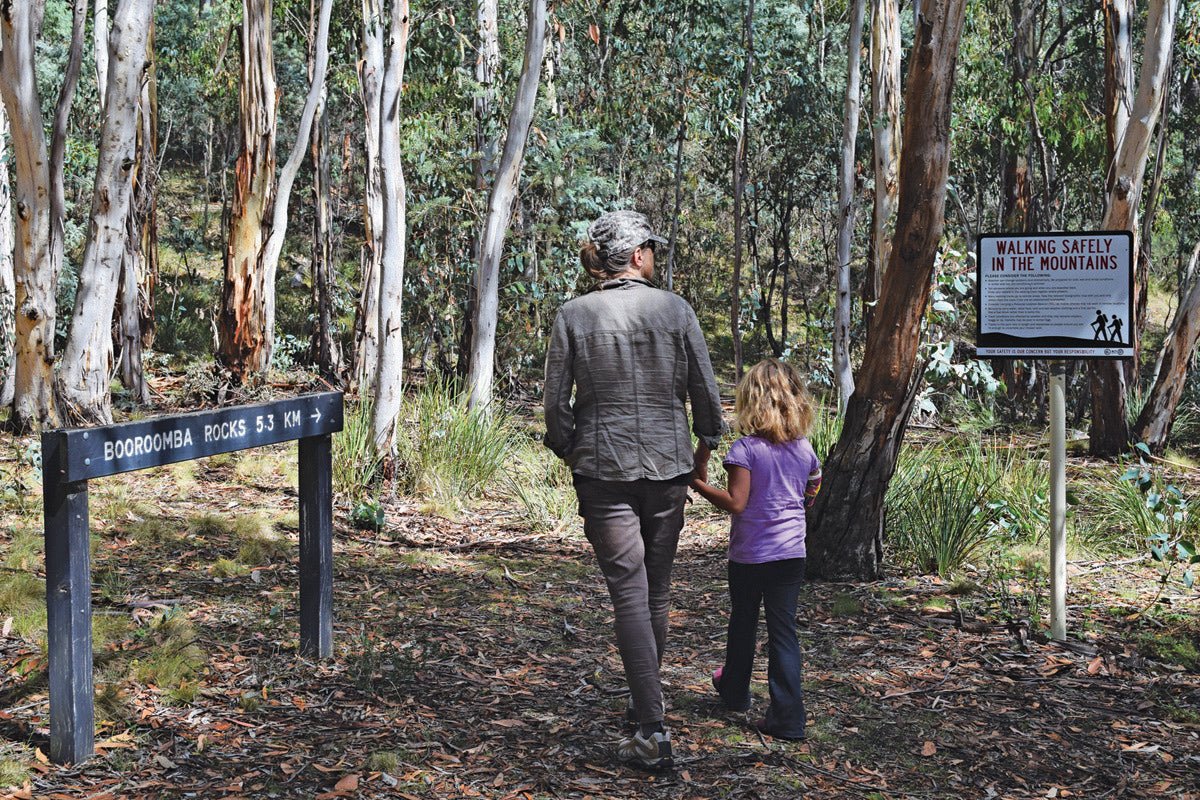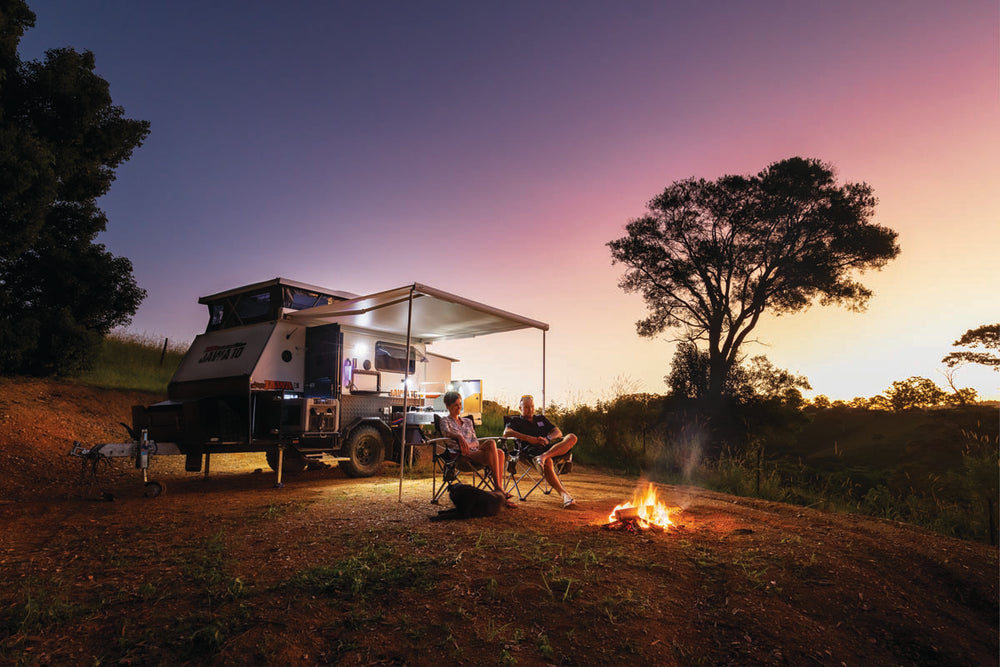Isolation Blues Buster

We’ll be telling our grandchildren stories based on the modern version of ‘back in my day’ about 2020. If this year were a movie, it would have been written by Stephen King and directed by Quentin Tarantino.
The 2019–20 bushfire season saw hundreds of fires right across the country. Having burnt a total of 18.6 million hectares, it’s already being called the ‘Black Summer’. Cue February, and it was floods for some. The rain was sufficient to fill dams and make rivers flow in some places, but elsewhere it wasn’t even a drop in the bucket. We also saw unseasonal snow in some parts and devastating hailstorms in others. Then, just when we thought we’d seen the worst of it, March delivered a global pandemic. With more than one million Australians left jobless, schools closed and a third of the workforce either working from home or forced to take leave, it sounds like an Armageddon movie or a saga of biblical proportions.
But it’s not all doom and gloom. If we’re fortunate enough to maintain our health and some pennies still roll in on pay-day, we may find that these days of ‘self isolation’ generate a once-in-a-lifetime opportunity to take stock and to focus on what’s important.
RAISE, TRAIN AND SUSTAIN
The decision to have kids comes with great responsibility. When we become parents, our primary responsibility is to ‘Raise, Train and Sustain’ a fully functioning human being. No-one said it was going to be easy and our reaction to the pandemic and home schooling will have an impact on our kids. We can’t wipe our hands of it, nor can we blame anyone else. We simply need to get on with it.
In better days, life on the road gave us the chance to offer our kids experiences that their school mates might only dream about. We exposed them to the incidental learning that comes from nature, science, history, geography, and maths — the list goes on. On holidays, we’ve probably lived for a month at a time in the caravan. When the weather’s turned bad, we have been trapped under our awnings for days. But we’ve managed it. Indeed, the occasional adversities that we’ve faced have made the joys of travel all the sweeter.
So, if someone told us the internal size of our caravan had magically morphed to that of an apartment or house, how would we react? We’d probably be amazed and overjoyed at the extra options to keep us safe, warm, fed and keep our kids constructively occupied until conditions got better.
Maybe if we look at the constraints imposed by social distancing and isolation in a similar light, things start to look a bit more manageable. Home schooling might not be so bad; after all, we suddenly have a unique opportunity to get hands-on with our kids’ learning. No longer relegated to the side-lines, there’s a reason to get involved with the school curriculum and a reason for our kids to allow us all to work together to get things done. And it doesn’t have to feel like the walls are coming down around us as we work through the syllabus. Schooling doesn’t all have to happen indoors. We can do reading in the backyard, exercise in the local nature reserves, build ‘outdoor classrooms’ (cubbies) in the bush — all in the name of education. To a kid with an open mind, this can all start looking like fun.
For younglings in particular, security comes from normalcy, so don’t make a big issue of the new schooling arrangements. The key to success is routine. Many child psychology experts tell us to mirror the day-to-day activities that our children would be undertaking at school. So, start and end the school day at the same time — same with recess and lunch. When do they do maths? When do they do languages? Follow the school learning package, even if you don’t understand it.
Ultimately, your job is to provide a safe and loving environment for your kids to learn. And if you need help, reach out to the teachers or other parents. We live in an age where information is at our fingertips — we just need to know where to look.
LOOK TO THE FUTURE
All is not lost; mankind will go on. When the current pandemic is just a bad memory, we’ll be itching to escape the confines of our current environments. So, to give yourself some much needed inspiration, start planning your ‘where to next’.
The lockdown is currently scheduled to continue for some time to come. There are rumblings that the current measures might stretch out to September, particularly if people don’t follow directions. With all that uncertainty, we’ll probably miss any chance to head north this year. But there are still plenty of fantastic destinations south of the Tropic of Capricorn.
Working out where to go can be a great way to give the whole family a positive vision for the future. Sit down with your crew and mark a map with all the places you’ve been. Not just the towns, but the routes you took to get there too. Now, that will be a trip down memory lane! While you’re doing this, write down all the attributes of the places that were most memorable to each family member.
When you’re finished, you’ll know what ‘a great trip’ looks like from everyone’s perspectives, and you’ll know what highways and byways you still need to explore. Next get the kids to research the attractions, history, campsites along these untravelled roads, as well as any permits you might need along the way. An after-dinner presentation to bring everyone up-to-speed is bound to generate lively discussion. Before you know it, you’ll be joining the dots to plot a course, and a travel itinerary will emerge before your eyes!
SQUEAKY WHEEL
Now that you know where you’re going and how you’re going to get there, it’s time to fix the squeaky wheel. Start thinking ‘Rig Maintenance 101’. Charge your batteries, flush out the water tank, oil this, tighten that and rotate the other thing. Check to make sure a colony of ants, mice or rats haven’t moved in while your home on wheels has been languishing in the driveway.
Use the time at home to fix all of those jobs you’ve been meaning to get around to. Once they’re done, treat yourself to a little DIY with new LED lights, GPS odometer, install a bike rack, sew new pillowcases, or blackout curtains — whatever takes your fancy.
MIND GAMES
Tinker all you like in the shed but remember to look after yourself. It’s a well-known among prisoners that the best way to get through isolation is to keep your mind active. For many of us, mental health can be an issue under normal circumstances, so in times of social isolation, it’s something we have to be really conscious of. Coop yourself up and you’ll get cabin fever. Neglect yourself and your loved ones and the impact of coronavirus will extend far beyond this lock-down period. Risks include domestic violence, divorce, alcoholism, depression, over-eating, going broke, a combination of all of these or something worse.
Even though the message is to ‘stay at home’, we’re still allowed to go outside for work, medical issues and exercise. As bipeds we’re ‘designed’ to walk. And if you don’t use it, you’ll lose it. Taking 10,000 steps everyday has been one of the biggest public health messages this decade. And it’s more important now than ever. By moving we reduce our risk of serious illnesses such as diabetes, heart disease, cancer, and depression.
Consider too trying something new. Perhaps it’s time to plant a garden, develop a habit of reading, doing a daily crossword or learn to play an instrument.
GET BAKING
When was the last time you properly cleaned and seasoned your camp oven and other cast iron campfire goodies? Don’t know what we’re talking about? You’re supposed to season your cast iron when it’s new. Fail to do this and your food won't taste as good as it could, your camp oven will rust, and cleaning-up will be more difficult. Periodic seasoning is necessary to keep your gear in tip-top condition as it creates a protective layer over the porous cast iron surfaces. It fills some of the pores which helps stop food particles from getting trapped and food from burning to the bottom.
Seasoning cast iron cookware is easy:
- If the cookware is new or has rust on the inside, wash it out with hot soapy water. Use steel wool and thoroughly rinse it in hot water. If it’s not new and has been seasoned before, just wash in hot water and a cloth.
- Place it in the oven for a couple of minutes to get it dry and hot.
- Using an oven mitt, take it out of the oven. Let it cool slightly and then rub in olive oil with a cloth or paper towel, inside and out.
- Let the cookware stand for a few hours or up to 24hrs.
- Preheat your oven or hooded BBQ (preferred) to around 300 degrees — you’ll find this next step is a bit smoky.
- Place your cookware inside the oven or under the hood and bake it for around 60 minutes or until the smoke stops.
- Turn off the oven/BBQ and let it cool.
You can do this a couple of times until you get a nice black patina or ‘glaze’ that’s not oily to touch. As you use your cast iron cookware, you’ll find cooking with fatty foods, like frying bacon, or deep frying will improve the protective layer. Conversely, acidic foods like tomatoes and beans can remove some of the protective layer. Hence the need to periodically re-season.
UPSKILL
Use the time to improve your skills to benefit yourself and for the safety of your family. For example, reading a first aid manual is a great way to refresh your skills. Would you know what to do if you or one of your travel party is injured? Would your partner and kids know what to do? While they can attend training when the social distancing restrictions lift, if you’re first aid qualified you can assist them now with the basics like the meaning and relevance of DRSABCD, how to treat a snake bite, how to tie a St John Sling, and how to work-out what slings are useful when and why. Then, for some ‘light’ relief, read survival stories to see how others have dealt with unexpected adversity.
Now is also the time to ensure that you and your family are really familiar with how to operate your camping aand how to use — emergency equipment. Review your owners’ manuals and get on top of the game.







